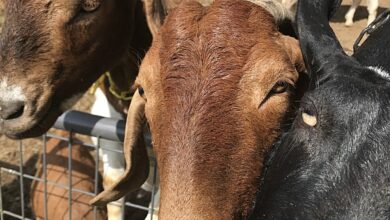Why The World Still Needs Superman, The Farmer

There may not be a more iconic fictional character than Superman. Created in 1938 by Jerry Siegel and Joe Shuster in Action Comics #1, Superman eventually came to embody truth, justice, and the American way. An all-powerful alien that crash-landed on Earth as a baby, Superman became a symbol of hope, not just in his fictional universe, but in our own, too.
Today, however, my kids don’t know much about him. They haven’t seen him in any recent films, since the latest movies featuring the character are far too dark for young kids, and even if they had, they wouldn’t see him the way those of us from older generations do. Superman was a cultural icon – now, not so much. Perhaps that will change in 2025 with the release of a new Superman film. I hope so. And that’s part of the reason I’m sharing my perspective on the character.
One of the reasons I believe people don’t identify with Superman anymore is that the folks who own the rights to this iconic character think he’s… boring. A big, blue boy scout who never kills his enemies, who always does the right thing, lacks the gritty, realistic, darker perspective that embodies the world today. Or worse, maybe he’s just a power fantasy for adolescent boys.
The thing is, Superman is exactly what the world needs today. Or, more accurately, Clark Kent, a humble farmboy from Kansas, is what the world needs today.
Or, as he said it himself, “Superman is what I can do. Clark Kent is who I am.
Clark Kent is a farmer, like his parents before him. He understands the faith required to plant seeds and hope for rain. He knows the virtue of patience. He recognizes the importance of community, of neighbours, of working together with those around him. Because of the example set by his parents, he knows that doing the right thing comes with its own justification.
The idea that you can have what is essentially an omnipotent, all-powerful god, who, if he wanted to, could destroy and enslave everyone, understand that the value of the individual matters more than the greater good, is a virtue rarely seen today, both in fiction and in reality. Let’s take a look at a couple of examples.

Solving World Hunger
In the graphic novel Peace on Earth, Superman grows tired of watching millions of people starve to death every year and resolves to stop it. He proposes to the United Nations that he can help end world hunger by personally delivering food all over the world. With their cautious blessing, he hauls containers filled with food to cities, towns, and settlements across the planet.
Strangely to him, he isn’t always welcomed with gratitude, but often with fear and distrust. He begins to realize that the problems that create hunger are bigger than he fully understood. A brief reprieve from hunger could not resolve the underlying issues causing poverty.
Superman realizes that nations with repressive governments inhibit the free exchange of products and ideas that are sorely needed for affordable food. Corrupt leaders destroy individual liberty, keeping citizens poor. Despite all his strength, solving the complex, myriad causes of hunger was simply beyond his abilities.
Reflecting on the lessons he learned from his father, he remembered the proverb of “give a man a fish and he eats for a day. Teach a man to fish and he eats for a lifetime.” Instead of using his strength to eliminate world hunger, he uses his knowledge as a farmer to teach people in poorer areas about how to farm better. He chooses to inspire others to save themselves, rather than waiting for someone else to save them.
The brilliance of this story is in its humble acceptance that no one person, no matter how strong or capable they are, can solve the biggest problems in the world. But each of us can step up and provide our knowledge, our time, even our bodies, to help others, even if it’s something small. Superman can’t end world hunger. But we can. If we appreciate that every problem has complex, nuanced solutions, full of trade-offs, and that individuals must have the freedom to make their own choices, free of corrupt government interference and protection from militant groups.
Compassion, Humility, and Liberty
In the excellent story All-Star Superman, author Grant Morrison gives us a look at what he perceives the final moments of a dying Superman’s life might look like. What would he spend his time doing?
He saves a young boy and his dog from being hit by a truck. He protects a rude jerk from falling debris. He saves the life of an enemy. He talks a young girl out of suicide. He cures dying children he’s been visiting in a hospital. He creates a way for Lois Lane to live one day with powers like him, giving her a real glimpse into his life for the first time.
Superman also meets a pair of Kryptonians (other people from his destroyed homeworld). Initially overjoyed to meet others like him, they unfortunately couldn’t be more different. They want to use their power to dominate humanity, considering him a fool for hiding his true abilities from them.
His response embodies everything about his character: “What right do I have to impose my values on anyone?” He is forced to fight them, his own species, to protect humanity. Later, after he saves Metropolis from them, they become severely ill. Rather than ignoring their suffering, he shows them compassion and works to ease it. He gives them peace in their final moments. Before their last breaths, they recognize the folly of dominating others, that harmony with so-called “lesser” beings was the better choice all along.
All-Star Superman shows us Superman’s compassion and humility, rather than focusing on his strength and amazing capabilities. It’s a marvelous story about doing the right thing simply because it’s the right thing to do.
Creating Hope in a World That Needs It
He is one of the very few examples of absolute power not corrupting absolutely. Of using his immense power for good – or, in many cases, not using his power, and working to inspire others to see the best parts of themselves.
There are other examples like Superman. Captain America of the Marvel universe might just be a more modern Superman – a man out of time, forced to adapt his 1930’s values to the modern world.
We live in a world today where so many young people don’t have hope for their future. Fears over war, climate change, economic crises, division over race and gender, all seem to be converging in a media landscape that loves controversy and apocalypse. Collapsing birth rates across the world are a compelling sign of this loss of hope for a better future. People need stories with idyllic heroes. In the last several years, we are seeing more and more morally grey characters that often put the ends ahead of the means.
While so many of these morally grey (or even morally black, like The Boys) are terrific stories, seeing the world in such a bleak way doesn’t show us a better path. It just reflects the way so many see our world today – not what it could be.
Heroes like Superman, Captain America, Spider-man, Luke Skywalker, Sam Gamgee, and so many others don’t take the easy path. They choose the harder road. They choose to stubbornly hold to their principles, their values, and serve others.
More Than Just Stories
These are so much more than just stories for children. Characters and stories like this can inspire hope in a world that often feels bleak, corrupt, and chaotic. We can look to them to help guide us through the darkest periods of our own lives. As Jor-El, Superman’s biological father, said to his son in Man of Steel:
“You will give the people of Earth an ideal to strive towards. They will race behind you, they will stumble, they will fall. But in time, they will join you in the sun, Kal. In time, you will help them accomplish wonders.”
These stories are, of course, fictional tales of beings that could not exist in our world. They aren’t real. But in some sense, they are incredibly real. These stories matter. We can learn from them. They can help us escape the struggles and suffering we all face in our lives. The people writing these stories are using them as a vehicle to show us that anyone, even the smallest person, can change the course of the future. JRR Tolkien, author of The Lord of the Rings, said that fiction allows us to visit places we may never see in real life and experience things we never could.
There are plenty of real-world examples of heroes, too. Many of them live in our own communities. People who put others first, who choose to serve others. Sometimes, we have to go looking for them, since they’d rather do their work quietly, and hide their identities avoid attention. People that are, in so many ways, real-world examples of Superman at his best.
I believe the world would be a better place if we all looked to characters like Clark Kent for inspiration. We could all do worse than emulating a humble farmboy from Kansas. Call that a dream, if you want. But as Superman once put it:
“Dreams save us. Dreams lift us up and transform us into something better. And on my soul, I swear that until my dream of a world where dignity, honor and justice are the reality we all share, I’ll never stop fighting. Ever.”





